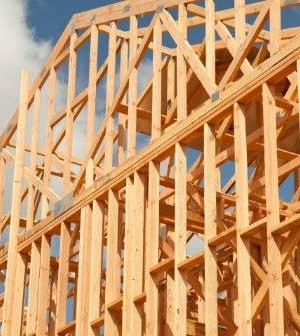- 4 Unexpected Things I’ve Learned From Buying My First Mobile Home Park
- How Ironic: America’s Rent-Controlled Cities Are Its Least Affordable
- U.S. homes are still a bargain on the international market
- Getting The Best Possible Quality Photos On MLSs and Syndicated Sites
- Home buyers in these markets have the upper hand
4 Vital Points to Consider BEFORE Getting Into New Construction

You can lump me into that category of real estate investors who have begun to venture into new construction and home building. I actually saw the writing on the wall back in 2009 and decided to get a Master’s degree in Building Construction and subsequently a General Contractors license in the state of Georgia. When everything came to a screeching halt in the late 2000s, It was clear that at some point in the future, new construction would have to ramp back up. I know in Atlanta, that time is definitely now.
In most major markets, new construction is dominated by the big track builders who blow out entire subdivisions in a year’s time. With their deep pockets and economies of scale, it can be difficult for a smaller builder to compete with them. However, for a savvy builder who can find the right lots and build at the right price, there may be opportunities to profit.
For any investors interested in expanding their business into new construction, it’s important to take an honest look at your market as well as your resources. Here are a few important components to consider before making the plunge.
4 Vital Points to Consider BEFORE Getting Into New Construction
Do you have the ability to build yourself, or will you hire a licensed builder?
In most states, building a new house requires a general contractor’s license. I would venture to say that most investors don’t already have a license and/or experience building new homes. For those who do, it may be a natural thing to transition back into new home construction. For the majority of investors who don’t, however, it is probably more likely that you will partner with a licensed builder to pull permits and manage the project.
If you don’t have the experience of overseeing a project of this size, it’s probably best to partner or hire an experienced builder to do this. As many investors will tell you, trying to oversee the complexity and minutiae of building a new home is probably not the highest and best use of your time anyways.
If you a hire a builder, is he qualified, and what will it cost you?
If you ultimately decide to hire a licensed builder to build for you, what will your agreement with that builder look like? I would venture to say that most licensed builders will want either a flat fee for building the house or some percentage based on the cost to construct (i.e. cost plus 15%).
As an investor, you need to first determine if the builder is competent and able to build efficiently and maintain high quality standards. At the same time, though, you need to be able to pay your builder and still have margin in the deal for this endeavor to make sense. To do this, I would venture to say that you need to find and partner with a builder who has enough experience to do a good job, but at the same time doesn’t charge so much that the numbers don’t make sense for you.
Are you going to develop land or find existing lots?
Another very important consideration is where to find land and lots to build on. Are you in a market that has plenty of vacant lots leftover from the downturn? If so, finding lots to build on may not be a problem at all. I know in my market that many of these “pipe farms” got scooped up by builders and hedge funds years ago and are now almost as expensive as a new development.
Perhaps you are in a more expensive market where you can buy a house, tear it down and build a new house for much more. There are certain pockets in Atlanta where builders are doing this. However, at these higher price points, it is imperative that an investor really understand the market. Buying a $200,000 home and building $700,000 home in its place can be profitable, but also very risky. It only takes one big miscalculation to sink the ship.
For any investor looking to build, its critical that an honest assessment be made regarding the availability of lots/land to build on.
Where will you get your financing?
Lastly, as an investor looking to build a new home, the question of where to get financing remains an important one. Where many investors are used to obtaining hard money on a fix and flip, building a new home can prove very different from this model. Most fix and flips can be completed in 6 weeks or less whereas a new construction home may take upwards of 6 months. If you are considering using a hard money lender to build, it’s important to factor additional holding costs into your projections.
While local commercial funding for new construction is still relatively tight, there may be opportunities to work through a local bank to obtain financing. While you will probably need considerable equity in the deal, the favorable interest rates that can be obtained through a local bank make holding a property for many months much more palatable.
In the end, just like any investment under consideration, it’s important to analyze your own skills, your resources and your market before making a business decision of this kind. For some investors, getting into new construction may prove to be very profitable and a timely business move.




 100% Secure
100% Secure
You must be logged in to post a comment Login